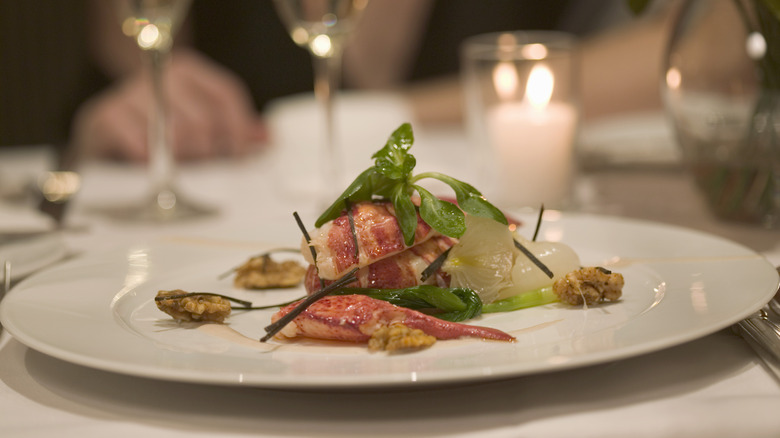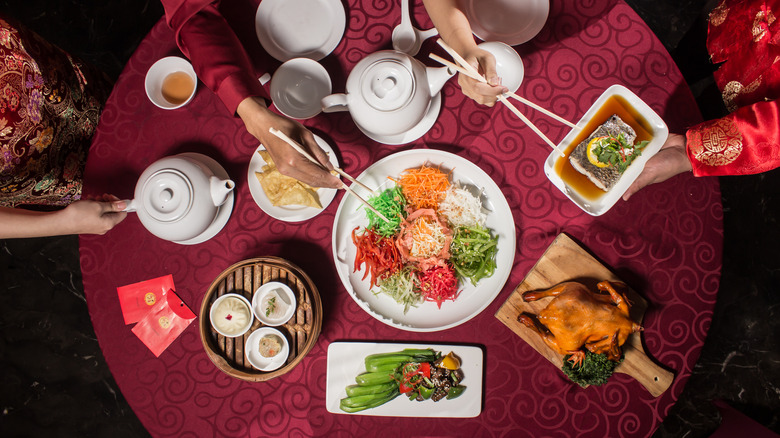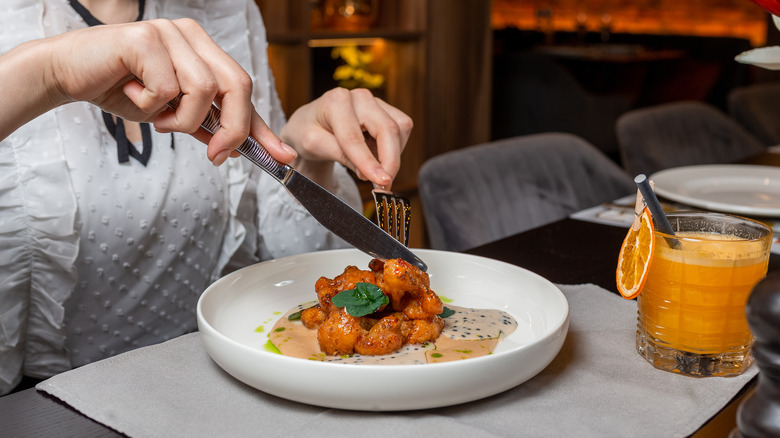Why It's Technically Polite To Leave Food On The Plate At Fancy Restaurants
As a child, "clean your plate" may have been a frequent refrain inside your home. While seemingly a staple of quality parenting in years past, HealthDay highlights how this common household rule could instill problematic eating habits in children. Clearing your plate might also come across as rude or impolite, particularly when you're enjoying a meal at a fancy, upscale restaurant.
It seems true that there's less emphasis on dining etiquette these days compared to the past, but many of the old rules still hold value. As explained by Kent State University, adhering to proper dining mores, like maintaining good posture and chewing with your mouth closed, offers both professional and social benefits. Prioritizing good etiquette in formal dining situations also makes a great impression on others, whether you're having a meal with friends, family, or business associates. Just consider how many distinct and diverse dining rules there are worldwide to understand why proper behavior is so important.
Dining etiquette from around the world
It's no surprise that every culture has its own dining rules and guidelines, which guests are naturally expected to follow during meals. There are variations between cultures regarding table manners around the world, such as Egypt's tradition of replenishing a fellow diner's glass of wine but never refilling your own (per Insider). Meanwhile, arriving on time for dinner in Canada is a highly inconsiderate move, and instead, guests are expected to be a little late.
China Daily delves into some uniquely Chinese dinner traditions, including whether to leave food behind when eating. It's generally considered good form to leave some food on your plate at the end of a meal, as this shows the host you're fully satisfied and require no more nourishment. AsianCustoms.eu offers further insight into eating from communal plates, which is quite common in China. In this case, diners are urged to leave food on shared plates or risk embarrassing the host. Taking the last bit of food gives the impression that the host did not provide enough for the table. While it's a distinctly Chinese tradition, it's easy to see how this etiquette rule translates to many other cultures regarding politeness and fine dining.
Other fine dining guidelines to abide by
While it's practically guaranteed that you're about to enjoy a fantastic meal, much of fine dining is about making a good impression on the other people in attendance. Accordingly, diners must be invested in behaving correctly to ensure an all-around pleasant experience. Insider provides additional insight into what's expected from guests at fancy restaurants, such as placing the napkin in your lap when eating and keeping your elbows off the dinner table.
Speaking of table space, mobile devices, wallets, and other personal effects do not belong on the table when eating. Instead, they should be tucked away in a pocket or purse for the duration of the meal. Additionally, never shout or yell when you need assistance from your server. It's considered much more polite to seek out eye contact and make a subtle gesture to attract their attention. And when you're finished, you can even send a secret signal to the server that you're done. To do so, arrange your knife and fork on the plate to mimic a clock face when the hands are pointed at 10 and 4.


